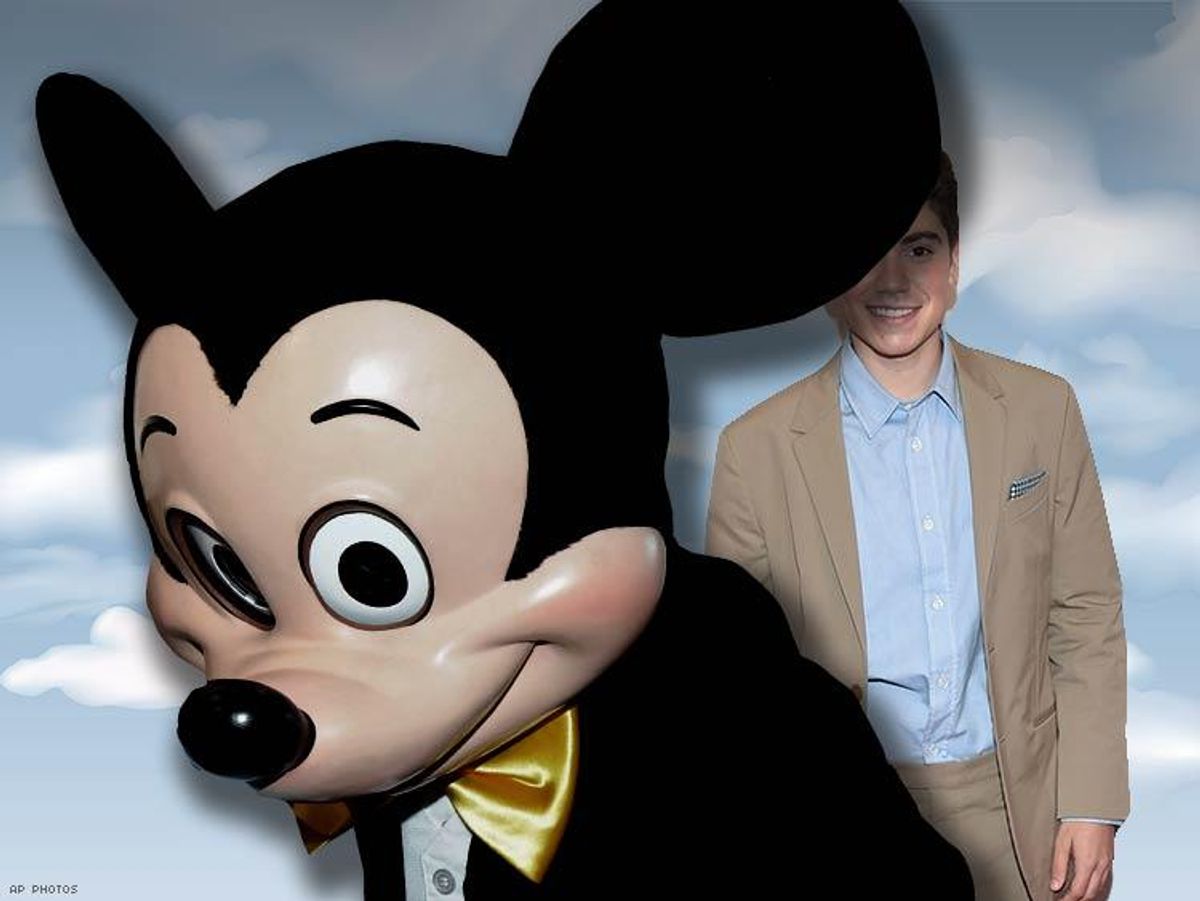On Thursday, something remarkable happened. An out actor, who plays a gay role on network television, spoke out against homophobia in Hollywood and criticized its glass closet.
Naturally, he was forced to apologize.
"The entire interview I gave to Vulture has hurt the LGBTQ community and the industry I feel truly fortunate to be a part of. My only intention was to try and empower and promote honesty, but I fully understand that comments I made were brazen and hurtful," said Noah Galvin, who portrays a gay teen, Kenny, on ABC's The Real O'Neals, a show inspired by the early years of gay activist Dan Savage.
Galvin was indelicate and at times vulgar in his descriptions of fellow actors who have struggled with the closet. He called a guest star who wouldn't admit his homosexuality a "f****t." He called Colton Haynes, an Arrow actor who teased his gayness for years while remaining closeted, "the worst" and a "pussy."
The language the 22-year-old used to describe real problems is undeniably juvenile. Yet issues like homophobia in Hollywood and the glass closet are real. And Galvin should not have to apologize for addressing them.
The Real O'Neals hired Galvin because at least one producer on the show, Todd Holland, knew that the role of a young Catholic teen coming out was too important to have a straight (or closeted gay) person play it. The role, which had been attacked by right-wing groups even prior to the show's launch, required a gay man who could speak from experience about the struggles faced by his community.
"As a gay man, this is a landmark role on network television. It should not be played by a straight man pretending to be gay," Holland stated prior to the show's premiere. They were lucky to find Galvin, because legal obstacles make it extremely difficult to cast out actors in LGBT roles.
Yet when Galvin did precisely what was expected of him -- to speak out against injustice against the LGBT community when he saw it -- he was made to retract it. We're not privy to how his conciliatory statement, issued on Twitter in the form of two typed images on the same day his interview was published, came to be. But it had all the markings of a network, manager, or PR team trying to repair damage, especially since only hours earlier, he applauded a Twitter fan for reading and understanding his message.
In tone, the apology is a far cry from the unvarnished, no-holds-barred language Galvin used to express the struggles of an actor who dare be out in Hollywood, as in his interview with Vulture. Considering his allegations of Bryan Singer's penchant for younger men, the statement also smells like a tactic to avoid a lawsuit.
But let's not throw the baby out with the bath water. Closeted actors are contributing to a homophobic culture by virtue of their visibility and the message their public denial of their identities sends to the world. Galvin has been brave to call that out, to point out anti-LGBT discrimination in casting, and also to be out in his first Hollywood role.
Disney, which owns the television network ABC, should reward him for tackling a prejudicial industry rather than penalizing him. The company's films -- from Star Wars to its Marvel blockbusters to its animated princess movies -- are failing the LGBT community in representation.
The public is now taking note, as evidenced by outcries from social media like #GiveCaptainAmericaABoyfriend or #GiveElsaAGirlfriend. It is one thing to release a statement against anti-LGBT legislation and threaten boycotts. But to create an LGBT superhero or Jedi or princess could move the needle for equality in ways issuing a press release never could. It could change hearts and minds in places like North Carolina, so that this law wouldn't exist in the first place.
Noah Galvin spoke out against homophobia in the entertainment industry, because homophobia exists. It's what he as an out actor faces every day. And Disney is complicit in its perpetuation. So don't make him apologize. Listen, Hollywood, and change.
DANIEL REYNOLDS is an editor at The Advocate. His series #HollywoodSoStraight addresses LGBT discrimination in the entertainment industry. Follow him on Twitter @dnlreynolds.

















































































